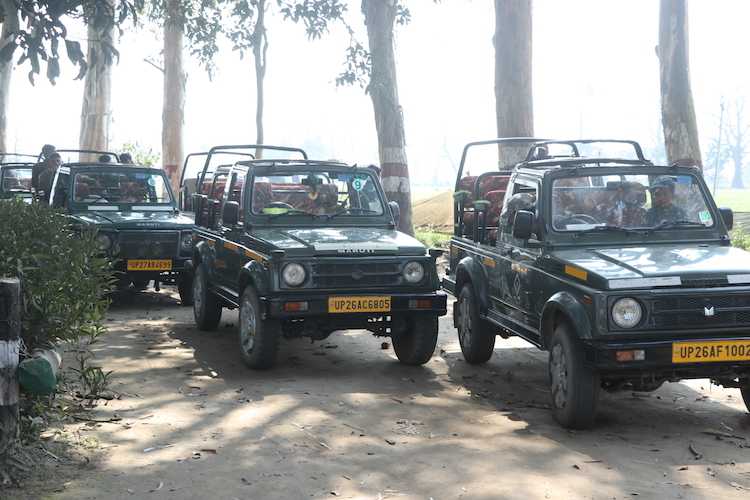Dudhwa National Park, located in Uttar Pradesh’s Terai, is one of the most beautiful National Parks, covering an area of approximately 490.3 square kilometers (about half the area of San Antonio, Texas). This National Park is well-known for the presence of endangered species. The National Park was established in 1958. During November and May, this National Park is breathtaking. One can also go on a Wildlife Safari. The Jungle Safari is the highlight of this National Park. The Jungle Safari allows visitors to explore the National Park. The Bird Festival is another appealing feature of Dudhwa; visitors come from all over the country to visit the national park on this eve. This is the best place in India to see Elephants, Tigers, and Rhinos in their natural habitat. Grasslands cover ninety percent of the park. The park’s wetlands are dominated by lakes, streams, rivers, and marshes.

History of Dudhwa National Park
The loss of the swamp deer’s natural habitats resulted in a drastic decrease in their population. To save the rest of the population, a small area known as the Sonaripur Sanctuary was designated for the conservation of this rare species of deer in 1958. Later, the area was expanded to 212 square kilometers (about twice the area of Manhattan) and renamed the Dudhwa Sanctuary.
In 1977, the area was expanded to over 614 square kilometers (about twice the area of Athens, Georgia) and designated as a National Park. In 1988, Dudhwa Park became a part of Project Tiger, for eleven years later. Following that, the Kishanpur Sanctuary was incorporated into the Dudhwa Tiger Reserve.
The rhinoceros used to live in these forests 150 years ago. Aside from the swamp deer, a large rhinoceros rehabilitation project began in 1984. Five rhinos were relocated from Assam, but two of the females died because of transportation stress. As a replacement, four more female rhinos from were brought from Nepal in 1985.
Travel Advice
1). Tourists should not harm the floral or faunal life.
2). It is not permissible to pluck the flora.
3). Do not start a fire or throw lit matches or cigarette buds.
4). Trash, litter, and polyethylene bags should not be thrown or left in the forest.
5). Chemicals and firearms should not be brought into the park as they may harm wildlife and vegetation.
6). Never use tape recorders or radios because their frequency and voice may annoy the animals.
Jeep Safari in Dudhwa Tiger Reserve
Dudhwa Safari Booking for the park’s five zones, namely Dudhwa, Sathiyana, Kishanpur, Pilibhit Tiger Reserve, and Katarniaghat. All safari booking procedures at Dudhwa are managed by forest officials following the guidelines of India’s forest department. Please keep in mind that nothing can influence the safari zone, safari driver, or naturalist guide because they are out of anyone’s control. The forest officials make the final decision. Although all the zones have a healthy tiger population and wildlife sightings are consistent. The automated computerized system manages these aspects to ensure the equal distribution of safari vehicles in respective zones.
Important Information Jeep Safari in Dudhwa
1). Visitors must obtain entry permits, which are available online (by producing valid documents)
2). It should be noted that the Dudhwa Park entry permit is provisional and can be changed or canceled at any time without prior notice.
3). In this regard, the order of the Director of the Dudhwa Tiger Reserve will be final.
4). The entry permit that you have is not transferable.
5). Only officially registered guides may accompany your excursions; please do not attempt to change the guide or naturalist.
6). After sunset, entry to the National Park is prohibited.
7). Except for tourists staying inside the forest lodges, day visits to the Dudhwa Tourism Zone are not permitted.
8). It is not permitted to get out of the vehicle while on a jeep safari.
9). Avoid bringing pets on holiday tours because pets are not permitted inside the DTR.
10). The rules and regulations of the Wildlife Protection Act apply to all visitors to the Dudhwa Tiger Reserve. As a result, please cooperate.



